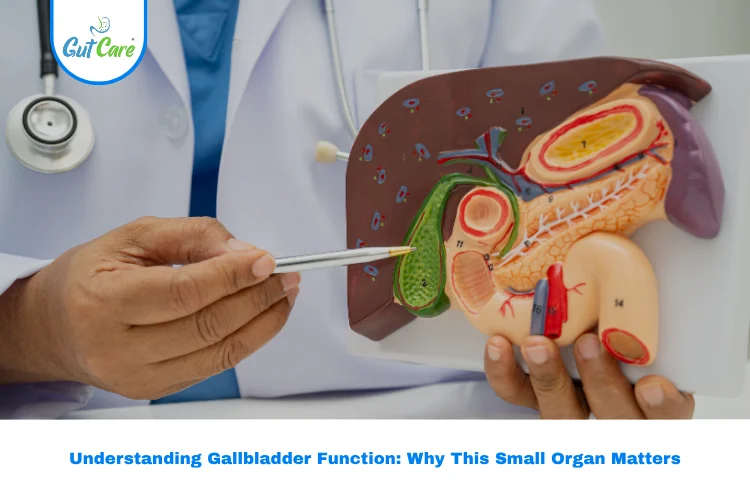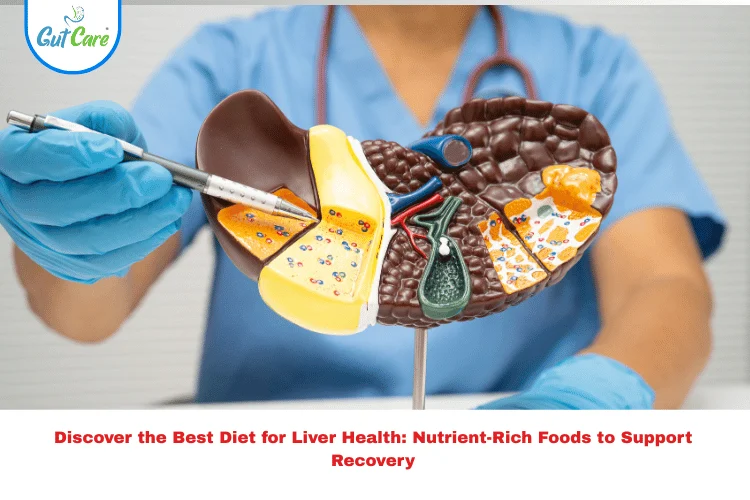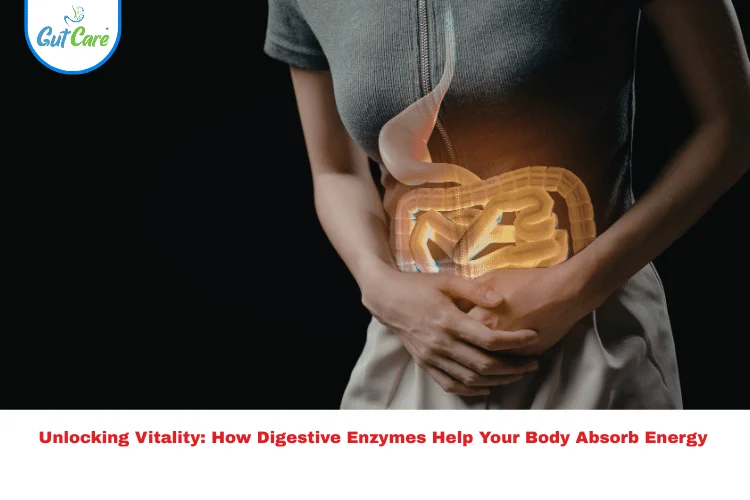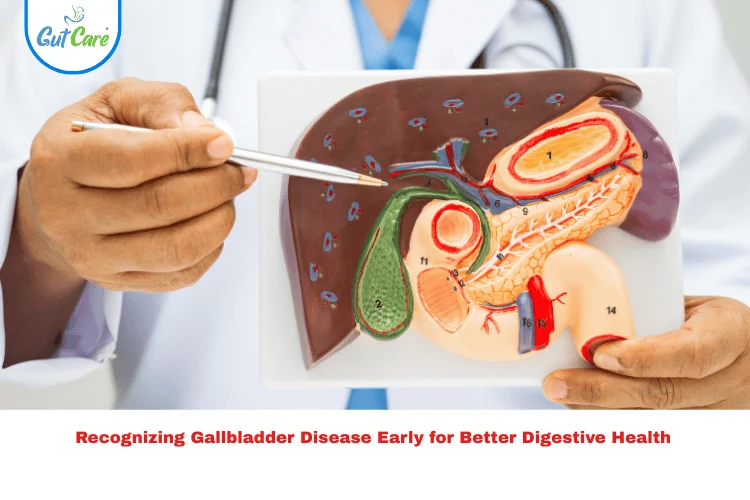Though small in size, the gallbladder plays a vital role in digestion and overall digestive health. Located just beneath the liver, it acts as a storage house for bile a fluid essential for breaking down fats. Understanding Gallbladder Function helps you recognize how this small organ contributes to your body’s metabolism and what happens when it doesn’t work properly.
At Gutcare Clinics, Bangalore, Dr. Yuvrajsingh Gehlot, an experienced colorectal surgeon, provides specialized diagnosis and treatment for gallbladder-related disorders. Proper awareness and timely medical care can prevent serious complications caused by gallstones, infections, or inflammation.
What Is the Gallbladder?
The gallbladder is a small, pear-shaped organ located under the liver. Its main job is to store and concentrate bile, a digestive fluid produced by the liver. When you eat fatty food, the gallbladder releases bile into the small intestine to aid digestion.
A well-functioning gallbladder ensures fats are properly broken down, supporting smooth digestion and nutrient absorption.
Gallbladder Function in the Digestive System
The Gallbladder Function can be summarized in three major steps:
- Storage of Bile: The gallbladder holds bile produced by the liver until it is needed for digestion.
- Concentration of Bile: It removes water, making the bile more concentrated and effective in breaking down fats.
- Release of Bile: When you eat, the gallbladder contracts and releases bile into the small intestine through the bile ducts.
This process ensures your body digests fats efficiently and prevents excess cholesterol buildup.
Common Problems Affecting Gallbladder Function
Several conditions can affect normal Gallbladder Function, leading to discomfort or serious health concerns:
1. Gallstones
One of the most common gallbladder problems, gallstones form when cholesterol or bile salts crystallize inside the organ. These stones can block bile flow, causing pain or infection.
Why gallbladder stones are formed:
Gallstones usually develop due to an imbalance in bile composition, excess cholesterol, poor bile drainage, or irregular gallbladder emptying.
2. Gallbladder Infection (Cholecystitis)
When gallstones block the bile ducts, the trapped bile can cause inflammation and infection, known as cholecystitis.
Gallbladder infection symptoms include:
- Sharp pain in the upper abdomen
- Fever and nausea
- Pain after meals
- Tenderness in the right side of the abdomen
3. Gallbladder Polyps or Sludge
Polyps are small growths inside the gallbladder, often harmless but occasionally linked to gallstones or inflammation. Biliary sludge thickened bile can also lead to poor bile flow and discomfort.
4. Reduced Gallbladder Function
When the gallbladder doesn’t contract properly, bile flow is disrupted. This can cause bloating, indigestion, or chronic discomfort after meals.
Gallbladder Pain Symptoms You Shouldn’t Ignore
Identifying early signs of poor Gallbladder Function can help prevent complications.
Common gallbladder pain symptoms include:
- Sudden pain in the upper right abdomen
- Pain radiating to the back or shoulder
- Indigestion, especially after fatty meals
- Bloating and nausea
- Mild fever or chills
If these symptoms persist, it’s important to seek medical help. At Gutcare Clinics, Dr. Yuvrajsingh Gehlot provides precise diagnostic evaluation through ultrasound or imaging tests to identify the root cause and suggest the best treatment.
Natural Ways to Support Gallbladder Function
While medical care is crucial for severe conditions, maintaining good Gallbladder Function naturally can prevent complications:
- Eat a Balanced Diet:
Include fiber-rich foods like vegetables, fruits, and whole grains. Avoid excessive fried or fatty foods. - Stay Hydrated:
Water supports bile production and keeps the digestive system healthy. - Maintain a Healthy Weight:
Rapid weight gain or loss can strain gallbladder activity. Aim for gradual, consistent weight management. - Exercise Regularly:
Physical activity boosts bile circulation and helps maintain digestive efficiency. - Avoid Skipping Meals:
Regular meals ensure steady bile flow, reducing gallstone formation risk. - Gallbladder Stone Home Remedy:
Drinking warm lemon water, consuming turmeric, and eating high-fiber foods may help maintain bile balance but these should complement, not replace, medical advice.
When to Consult a Doctor
If you experience repeated discomfort, indigestion, or pain after meals, consult a medical expert. At Gutcare Clinics, Bangalore, Dr. Yuvrajsingh Gehlot and his team specialize in diagnosing and treating gallbladder diseases using advanced and minimally invasive methods. Personalized care ensures quick recovery and long-term digestive health.
Conclusion
The Gallbladder Function plays a crucial role in fat digestion and overall digestive wellness. Understanding its importance helps you recognize early warning signs and adopt healthy habits. With timely diagnosis and expert care from professionals, most gallbladder issues can be effectively managed.
FAQs About Gallbladder Function
1. What is the main Gallbladder Function in the body?
The gallbladder stores and releases bile, which helps digest fats efficiently during meals.
2. What are common gallbladder infection symptoms?
Typical symptoms include abdominal pain, nausea, fever, and tenderness under the ribs.
3. Why do gallstones form in the gallbladder?
Gallstones are caused by excess cholesterol, poor bile drainage, or imbalanced bile composition.
4. Can I improve Gallbladder Function naturally?
Yes, through a healthy diet, regular exercise, and hydration. Avoid fatty foods and maintain a steady weight.
5. How does Gutcare Clinics help with Gallbladder Function issues?
At Gutcare Clinics Bangalore, Dr. Yuvrajsingh Gehlot provides expert diagnosis and modern treatment for gallbladder problems, ensuring safe and lasting relief.




